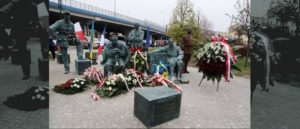Piret Peiker, the widow of the late György Schöpflin, is a research associate at the Faculty of Humanities, Tallinn University. Her research interests include post-colonialism, modernity, nationalism and the nation, and globalisation. In our interview, we ask her why she thought it was important to donate her late husband’s collection to our university, what she would highlight from it, and how she sees Estonian–Hungarian academic cooperation.
It is a great honour for the University to be able to preserve the legacy of György Schöpflin for future generations. Why did you think it was important to donate your late husband’s library to the Ludovika University of Public Service (UPS)?
First, because George – I call him George, as we met in London – last job, where he worked until his last days, was at the UPS. When the university asked me if I could put together a collection, I thought it was a very good idea. I knew how important it was for George to work at your university, because it connected him to the academic world, which also allowed him to contribute to the public debate on Europe. It was then that I decided to put together this collection, as this legacy could continue his legacy in book form. Books are people’s interlocutors because they can get to know and discuss their content. I also really like the room itself, so that the heritage is not a museum but an active space where people can meet and discuss their reading alongside books.
Have you had the opportunity to visit the UPS before?
Unfortunately, I have not yet physically visited this university, which is why I regret that I was unable to attend the ceremony due to an unexpected illness. However, I know how much work the researchers have done, even during the coronavirus epidemic. Thanks to the mediation of Ferenc Hörcher, I was able to attend a seminar at the university as a guest speaker, in which my late husband was involved as a senior researcher. Through this I met a group of people researching intellectual history at the university. I started my academic career in comparative literature but have now moved into intellectual history. It also became an area of growing interest for George. We ended up attending the same seminar, which brought us both to the university. Of course, I can’t say that I know your institution very well yet.
If a young researcher wants to learn about the Schöpflin-legacy, how should it be started?
Well, it depends on what kind of young researcher you are and what your goals are. If it’s a researcher who is interested in George’s thinking, then it’s worth just looking around the collection, taking his books off the shelf. But if you are researching a specific topic, it is worth looking through the books in a targeted way. It’s worth looking at more than just one book on a particular topic, as George’s library may contain many books on the same subject. This is what I tried to do when I put together the collection: I included theorists from different schools of thought, of different political persuasions, so that the library would not be a monologue. Of course, as I said, it all depends on the researcher’s own goals. I would, however, be very happy if these documents could diversify the students’ perspectives. It would be good if they could show an interest beyond their field of specialisation, beyond their research topic, in something that may not be what we first think it is. For example, a lawyer, if he or she were to pick up a book on cultural semiotics, I would be curious to see where it would lead.
Is it possible to highlight anything from this legacy, or is that a task for future researchers?
I have tried, as far as I can, to better highlight the different aspects of his interest. For example, semiotics or the work of Chantal Mouffe. The latter, although a left-wing researcher, George found his ideas very interesting, so they met in person and had some very good conversations. I also tried to include books in the collection that are not so easily available, either because they are old and not on the internet, or because, although interesting, they are published by a small publisher. There are also some books that would be easily available in Hungary, but which are not something that students studying to become diplomats or police officers would normally look at on their own. I think there is a lot of content to be discovered. I would welcome feedback on what readers think of this collection. I have done my best.
Thank you very much for that. How do you see Estonian–Hungarian cooperation in science? Are there any areas that could be further developed?
I meet many Hungarian scientists at conferences in Estonia. I see fewer Hungarian students than that, but of course I don’t have exact statistics, and I only see students in the humanities and some in the social sciences, but not at all in engineering, for example. I don’t think that many Estonian students come to Hungary either, for lack of scholarships or knowledge of them. But there are areas where there could be better and more cooperation. Where this relationship is strong and growing is in the field of Finno-Ugric studies. Estonian and Hungarian are related languages: the students can learn each other’s languages either at ELTE or at the University of Tartu. But there are other areas where academic cooperation could be improved. Today, political relations between the two countries are not very good either, which may also make Estonian students reluctant to come to Hungary.
Photo credit: Dénes Szilágyi



